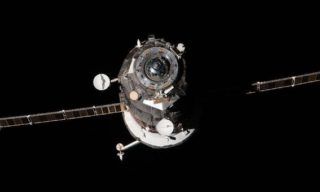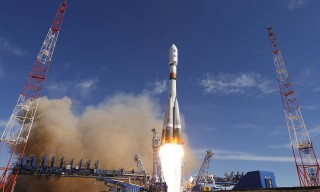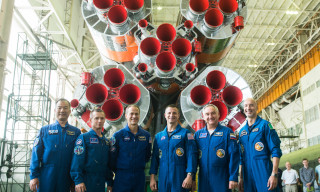Russian high-elliptical hydrometeorological satellite system Arktika-M with the equipment manufactured by Russian Space Systems Holding (RSS, a part of Roscosmos) will be integrated into the COSPAS-SARSAT international space search and rescue system. This, as well as other issues related to the operation and evolution of the COSPAS-SARSAT system, were discussed at the 35th annual meeting of the COSPAS-SARSAT Joint Committee (OK-35). The Russian Federation (Andrey Fedoseyev) together with the United States (Alan Knox) provided the chairmanship.
Over 300 delegates from 36 countries participated in the meeting via videolink from 8 to 30 November 2021. The delegations included the International COSPAS-SARSAT Program participant countries as well as representatives from the European Commission, the European Organisation for the Exploitation of Meteorological Satellites (EUMETSAT), the International Civil Aviation Organisation (ICAO), the International Telecommunication Union (ITU), the Radio Technical Commission for Marine Services (RTCM) and the COSPAS-SARSAT Secretariat. For the first time, the Joint Committee meeting was chaired by an RSS representative.
JC-35 Chairman, RSS Chief Designer for Search and Rescue Systems Andrey Fedoseyev: ‘We paid special attention to the issues of readiness of the COSPAS-SARSAT system to act as a data supplier on the aircraft position in case of emergency in flight. These refinements have been carried out since 2016 to bring the system to meet ICAO requirements and comply with the ICAO’s concept of a global aeronautical distress communication system and to ensure safety.’
The Russian delegation informed the meeting participants that in 2022-2025, Russia plans to conduct tests to assess the characteristics of Arktika-M remote sensing satellites to integrate them into the COSPAS-SARSAT system. The test will be similar to those passed by the Electro-L and Luch-5A based satellite systems. Based on the test results and after the Arktika-M No. 2 satellite launch, the necessary amendments to the COSPAS-SARSAT standards will be made to regulate the inclusion of the Arktika-M in the COSPAS-SARSAT system. The use of data from Arktika-M will enable aircraft position tracking in case of emergency in flight.
The meeting also touched upon the operational problems of the transition of the COSPAS-SARSAT medium-orbit satellite-based search and rescue system to trial operation and the issues of the soonest possible introduction of the COSPAS-SARSAT ground segment into the system. The enhancement of the COSPAS-SARSAT quality management system to monitor the performance of the SARSAT system was discussed in detail.
The participants also discussed current information on the status and application of the COSPAS-SARSAT system, and reviewed over 130 technical papers with proposals to improve COSPAS-SARSAT standards.
The COSPAS-SARSAT space segment currently comprises: 4 low-orbit satellites in near-polar orbit, 10 geostationary satellites and 42 medium-orbit satellites at altitudes ranging from 19,000 to 24,000 kilometers. The medium orbit constellation includes satellites of global navigation systems GLONASS, GPS, Galileo, Beidou; geostationary – Goes, MSG, Insat, Electro, Luch-5; low-orbit – NOAA, METOP, Meteor-M No. 2-2.
The International COSPAS-SARSAT Program was created in the interest of the world through the joint efforts and coordination of Canada, France, the USSR, and the United States. Forty-five nations and organisations have now joined the International COSPAS-SARSAT Program.
The COSPAS-SARSAT system provides rescue for those in distress on land or sea. Access to and use of the COSPAS-SARSAT System by those in distress is free of charge. The COSPAS-SARSAT System has already rescued over 53,000 people worldwide.



















